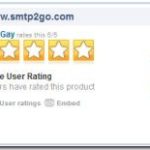Back in the early days, the Internet was the Wild West of money-making opportunities, and many bad or obnoxious practices made fast money for those who wanted to take advantage of people. Although there are plenty of opportunists left who want to just make a quick buck, and there are more ways than ever to take advantage of people, most reputable business owners are looking for a stable way to gain market share, interact with their customers in meaningful ways, and build their online presence in a manner that’s sustainable and financially rewarding.
When you’re just developing your online existence, it’s tempting to go for the method that will give you a meteoric financial and popularity boost; most of us are enthusiastic and anxious to see our business do well. However, most short-cuts only lead to temporary success, and many of the top search engines are on to so-called ‘black hat’ marketing methods that customers find annoying and borderline shady. If you’re not into qet-rich-quick-schemes and you want to build your customer base organically while avoiding penalties from Google and other search engines, here are some web marketing practices to avoid.
1. Keyword over-saturation.
Keywords are one of the easiest ways to help ensure that your business ranks somewhere near the top when consumers are looking for a service provider, but search engine algorithms got wise to the very bad practice of keyword stuffing along time ago. Keyword over-saturation is a where a business will use either too many keywords to increase their chances of a customer hit or use keywords that are irrelevant to their content to try and drive traffic.
Don’t do that. For one thing, search engines will penalize you if you’re caught, and you’ll decrease your chances of converting visitors if they’re not looking for what you’re selling. Use a select number of relevant keywords in a natural way for best results.
2. Purchasing information.
There are many shady businesses online that will sell you information that they promise will increase your hits and conversions by artificially increasing your prospects. Buying mailing lists, links and other data is the e-marketing equivalent of cold calling or door-to-door-sales. Better to use methods that target potential visitors who are already interested in doing business with a company like yours.
3. Using links inappropriately.
Another trick that search engine companies are cracking down on is artificial link building. This entails such practices as linking to your website in comment forums or on high-performing blogs and other platforms that have no relation to your business, for the sole purpose of generating exposure.
4. Providing bad content.
Some business think that more content is better. A website that is too busy, too dense, or too full of irrelevant or low-quality information will provide a negative customer experience and lead to penalties. The right balance of both new and evergreen content that is concise and high in quality is the way to go.
5. Linking with unscrupulous partners.
This also ties in with link building, and the old saying about being judged by the company you keep is as true online as it is in the real world. Run frequent checks about who is linking to your website, and carefully evaluate the business and websites you affiliate yourself with.
There are plenty of web designers Sydney business owners can count on to act professionally while remaining on the cutting edge of technology and innovation. It’s best for the longevity of your online presence to work with a reputable company that shies away from quick fixes and questionable business practices, no matter what kind of results they claim.







